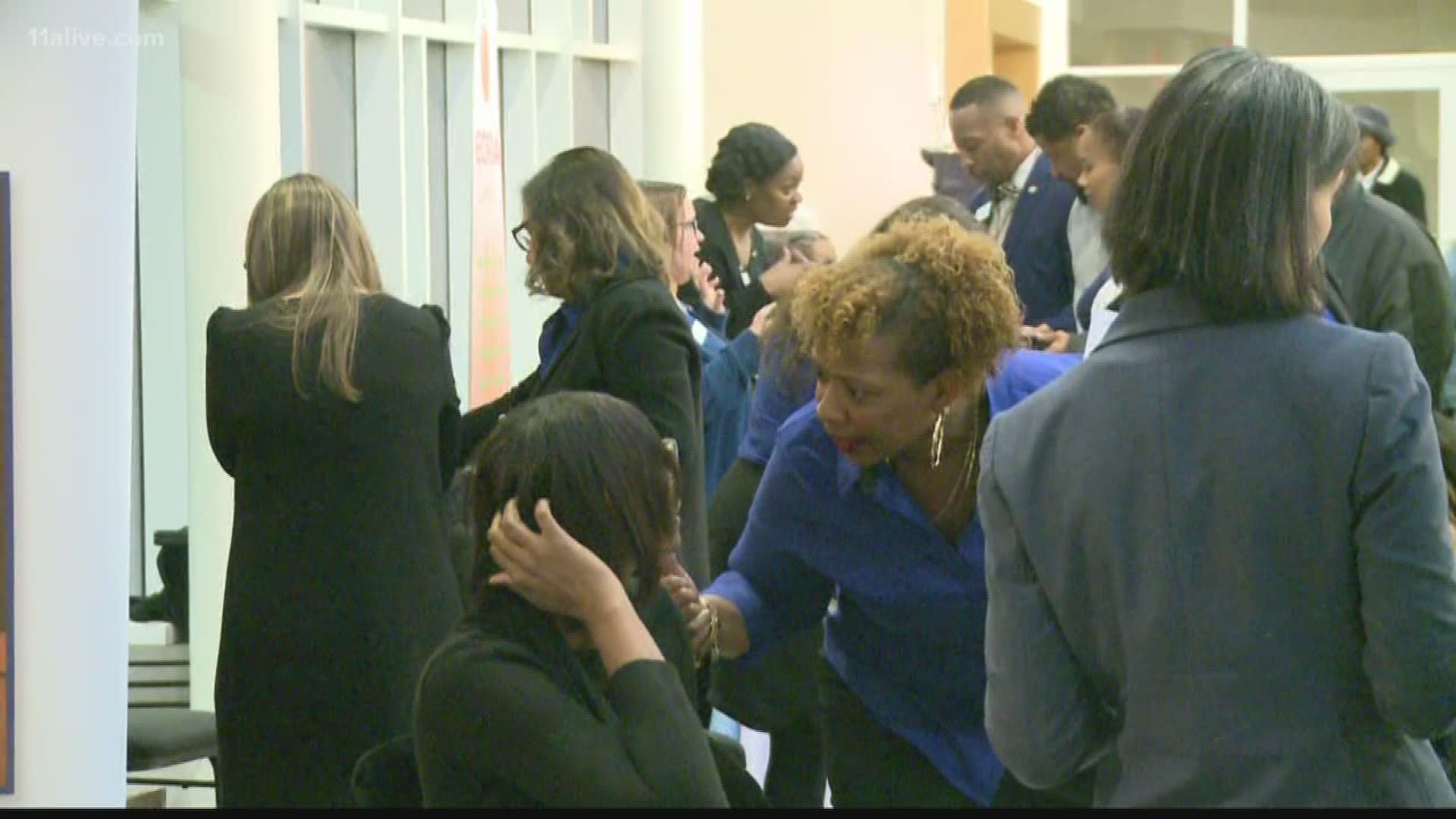ATLANTA — Georgia Gov. Brian Kemp and First Lady Marty Kemp have been huge supporters of stopping sex trafficking in the state since taking office.
They had strong words on Tuesday for the anti-human trafficking legislation recently introduced in the State House and Senate.
H.B. 823, sponsored by Rep. Houston Gaines (R - Athens); H.B. 911, sponsored by Rep. Ed Setzler (R - Acworth); and S.B. 435, sponsored by Senator Brian Strickland (R - McDonough) are supported by the Governor and First Lady in an effort to end human trafficking in Georgia, they announced.
"I would like to thank these members for their hard work and support for these important pieces of legislation," said Governor Kemp. "We look forward to working with the General Assembly in the coming weeks to hold bad actors accountable, give victims a second chance, and strengthen protections for our foster children."
First Lady Kemp echoed his remarks and said the bills are sending a strong message to the perpetrators.
"Representative Gaines, Representative Setzler, Senator Strickland, and their co-sponsors are leading the fight to end human trafficking, and I greatly appreciate their efforts," said First Lady Marty Kemp. "These bills will give a voice to the voiceless and send a clear signal that we will not stop until every victim is rescued and every perpetrator is brought to justice."
These are the bills introduced:
H.B. 823
In accordance with a federal rule passed last summer through the U.S. Department of Transportation, this legislation will allow the Georgia Department of Driver's Services to impose a lifetime commercial driver's license ban on anyone convicted of trafficking an individual for labor servitude or sexual servitude if he or she used a commercial motor vehicle to commit the offense.
Camila Zolfaghari with Street Grace told 11Alive truck stops are often times the place where a number of traffickers will go to target vulnerable men and women. "If somebody is a trafficker, if somebody wants to exploit the vulnerable, one of the places they could go would be a truck stop to see those who are being trafficked, to try to lure and pick up other girls and to take them to another place where they aren't as familiar and where they are even more vulnerable," she said.
H.B. 911
This legislation closes a dangerous loophole in state law by prohibiting a foster parent from engaging in improper sexual behavior with children in their care. It also strengthens penalties for offenses of sexual misconduct by a foster parent.
S.B. 435
This legislation will create multiple pathways specifically for survivors of human trafficking to restrict access to their criminal records and/or secure vacatur, which is an order essentially overturning or nullifying a criminal conviction. This legislation was developed in close coordination with advocacy groups, stakeholders, and members of the GRACE Commission.
Zolfaghari says this piece of legislation is crucial to helping human trafficking survivors move forward. "Very often when people are trafficked they come out of that trafficking situation with criminal arrests and convictions, everything from prostitution to drugs to shoplifting. Those types of crimes can keep a survivor from getting a job, it can keep a survivor from getting housing, getting housing assistance, from getting an education," she told 11Alive.
MORE HEADLINES:

